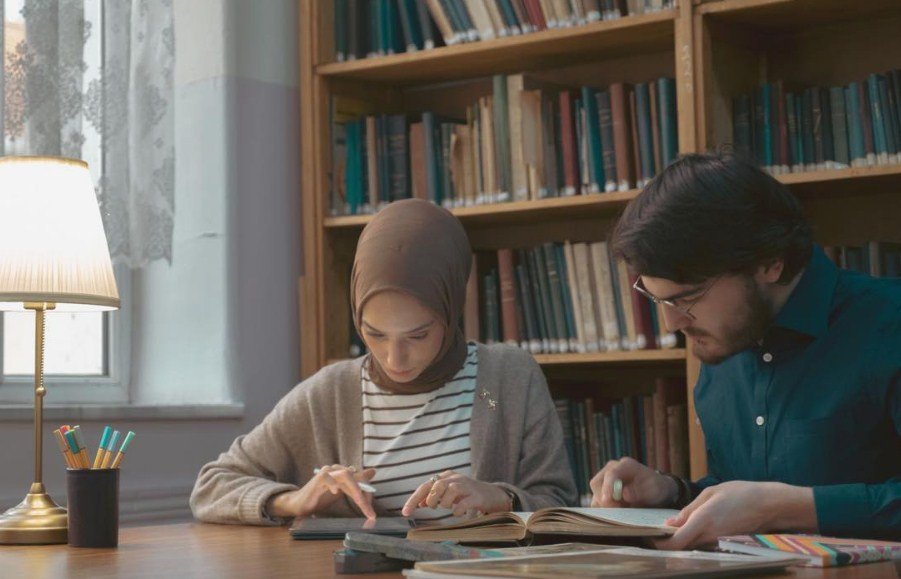Georgian literature is one of the oldest and richest in the world, with a history that spans over 15 centuries. It reflects the cultural and historical diversity of the Georgian people, who have faced many challenges and hardships throughout their existence. Georgian literature also influences the minds of students, who can learn from the wisdom and creativity of the Georgian authors. In this article, we will explore how Georgian literature evolved over time, and how it impacts the education and worldview of students today.
The Origins and Development of Georgian Literature
Georgian literature began with the introduction of Christianity in the 4th century, when the Georgian alphabet was created and the first translations of the Bible were made. The earliest known work of Georgian literature is “The Martyrdom of the Holy Queen Shushanik”, written in the 5th century by Iakob Tsurtaveli. It is a hagiographic account of the life and death of a Christian noblewoman who was persecuted by her husband, a Persian governor.
In the 11th and 12th centuries, Georgian literature reached its peak with the emergence of the Georgian Golden Age, a period of political, cultural, and artistic flourishing. The most famous work of this era is “The Knight in the Panther’s Skin”, an epic poem by Shota Rustaveli. It is considered the national epic of Georgia, and one of the masterpieces of world literature. It tells the story of the adventures and love of four friends, who travel from Georgia to India and Arabia in search of their beloved princesses. The poem is full of allegories, symbolism, and moral lessons, and expresses the ideals of chivalry, friendship, and loyalty.

In the 18th and 19th centuries, Georgian literature was influenced by the European Enlightenment and Romanticism, as well as by the social and political changes that occurred in Georgia under the Russian rule. Some of the prominent writers of this period are Sulkhan-Saba Orbeliani, who wrote the first Georgian dictionary and a collection of fables; David Guramishvili, who wrote a poetic autobiography of his exile and suffering; and Nikoloz Baratashvili, who is regarded as the first Georgian romantic poet.
In the 20th century, Georgian literature faced new challenges and opportunities, as Georgia experienced two periods of independence, two Soviet occupations, and a civil war. Georgian writers experimented with different genres and styles, and addressed the themes of national identity, social justice, and human dignity. Some of the notable authors of this period are Ilia Chavchavadze, who is considered the father of modern Georgian literature and a national hero; Vazha-Pshavela, who wrote epic poems and stories inspired by the folklore and nature of the Georgian mountains; and Mikheil Javakhishvili, who wrote realistic novels and short stories depicting the life and struggles of the Georgian people.
The Impact of Georgian Literature on Students
Georgian literature is an integral part of the Georgian education system, as students are required to read and analyze various works of Georgian literature from different periods and genres. By reading Georgian literature, students can:
- Learn about the history and culture of Georgia, and appreciate its diversity and richness.
- Develop their language and literary skills, and expand their vocabulary and expression.
- Enhance their critical thinking and creativity, and explore different perspectives and ideas.
- Discover their own identity and values, and relate to the characters and situations in the literature.
- Enjoy the beauty and artistry of the literature, and be inspired by its messages and emotions.
Georgian literature also has a global impact, as it is translated and studied in many countries around the world. Georgian literature introduces the world to the unique and fascinating aspects of the Georgian culture and mentality, and contributes to the dialogue and understanding among different nations and peoples.
Georgian literature is a treasure of the Georgian nation, and a source of inspiration and education for students. It reflects the past and present of Georgia, and shapes the future of its society. Georgian literature is also a gift to the world, and a bridge of communication and cooperation among cultures. By reading and appreciating Georgian literature, students can enrich their minds and souls, and become better citizens of the world.
